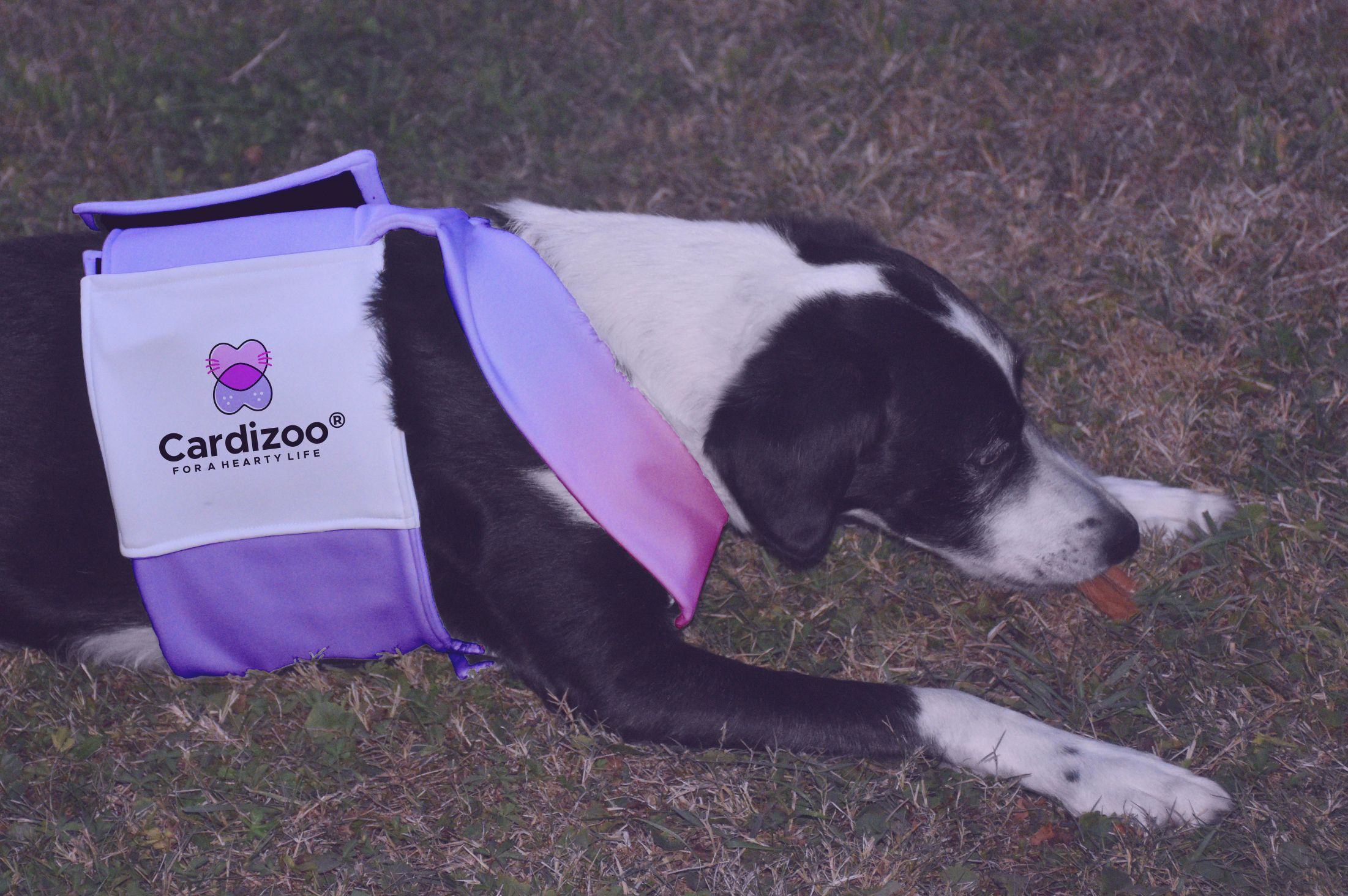Syncope in dogs
- Home
- Syncope in dogs

A horror scenario for every dog owner:
Syncope in dogs
Probably everyone knows the feeling: your knees get weak, you start to tremble, you get either warm or cold, your pulse gets faster and your eyes often suddenly flicker or turn black and in the worst case you cannot be addressed for a few seconds - here we are obviously talking about syncope, also known as fainting. Syncope is the short-term loss of consciousness. In the following section we discuss the causes, symptoms and side effects that syncope - fainting - brings with it. Here, the differences between syncope and other underlying diseases are discussed in more detail, as well as possible solutions.
What is the cause of syncope in dogs?
In most cases, it is a matter of insufficient blood supply to the brain, which can be triggered by certain harmless influences such as long standing, stuffy air or stress, but there can also be a serious underlying disease of the heart. In addition, other causes, such as a lung disease or knee-jerk dilatation of the blood vessels, can also play a central role. For this reason, it is always important to have a syncope clarified by a doctor you trust. The symptoms mentioned above do not only affect us humans, because your beloved fur nose can also be affected by circulatory collapses. It is important to know that syncope is basically not an independent disease, but rather a series of symptoms that, for example, can be harbingers of different diseases.

How do you differentiate between syncope and other disorders of consciousness?
Diseases with loss of consciousness are usually difficult to distinguish from conventional fainting. A distinction is made between epilepsy and syncope, which is usually initiated by an event such as exertion, excitement or coughing. It is difficult to distinguish between physical exhaustion and unconsciousness. It is therefore essential to find out whether the dog is still responsive at all, since weakness symptoms are mostly metabolic-related, whereas syncope is due to a heart disease.
A horror scenario for every dog owner
Your own beloved four-legged friend falls to the ground and no longer reacts The question now arises as to why your four-legged friend suddenly falls over and becomes unconscious. Basically, a short-term, cerebral underperfusion, i.e. restricted blood flow, can be assumed, which sooner or later contributes to the fact that the brain can no longer be adequately supplied with oxygen. The dog becomes unconscious and loses body tension. This condition is often only short-lived, because if the dog falls on its side, the blood can get back into the brain more easily and your four-legged friend usually recovers within a few seconds and then behaves as if nothing had happened. As in humans, there are several causes in dogs that can be the reason for fainting, but syncope in dogs is in most cases associated with a heart disease. Because of this, it is important to get the advice of a veterinarian you trust as quickly as possible in order to clarify the cause and thus avoid "worse" with your beloved four-legged friend.
Heart failure due to syncope
Heart failure is a heart failure. As a result of this ailment, the sick, weak dog's heart no longer transports enough blood into the circulation, which is why the organs are no longer supplied with sufficient oxygen. In order to get to the bottom of the cause as best as possible, your vet may ask about the frequency and duration of the fainting. If, for example, hypoglycaemia due to diabetes mellitus, neurological causes, a side effect of a drug or, for example, poisoning can be ruled out, the origin - as already mentioned - is in most cases of cardiological nature and - depending on the intensity - either drugs are administered or in the case of serious ones Cases even thought about a pacemaker. Possible cardiac causes of syncope in dogs include:
- Pathological enlargement of the heart muscle and heart valve diseases
- Fluid in the pericardium (pericardial effusion) or diseases of the pericardium
- Cardiac arrhythmias
- Tumors on the heart
If a diagnosis has been made by the veterinarian using blood tests, ultrasound and / or X-ray examinations, appropriate treatment can be started.

Health check for dogs - without much effort and at your home
Many diseases are often only discovered when they are already at an advanced stage. Imagine that you could save your four-legged friend all the pain and stress by starting early enough preventive care, which could be carried out for both your beloved four-legged friend and you, with little effort and uncomfortable visits to the vet. As? With the help of Cardizoo.

What is Cardizoo?
Cardizoo has developed a patented and comfortable harness for your dog that measures the heart rate both during the day and at night and can perceive and make visible possible abnormalities. You can then evaluate the measurements carried out with your trusted veterinarian and identify and treat possible diseases at an early stage. The great advantage of this is that it is easy to use without the stress that the dog experiences when visiting the vet, as well as the fact that there is no need to shave, which is inevitable during an electrocardiogram. This not only improves the quality of life of your four-legged friend, but also enables them to live longer!
If you should notice symptoms similar to those listed above in your four-legged friend or if you want to take preventive action against a heart disease of your favorite, Cardizoo advises you to have a healthy examination of the animal you trust.